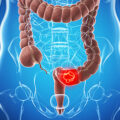black politics on the web
October marks National Breast Cancer Awareness Month. Is there cause for celebration? For many reasons, the answer is a resounding “yes.” Since 1990, the rate of death from breast cancer has been dropping. Research—much of it funded by the National Cancer Institute (NCI)—has improved our understanding of breast cancer and produced more effective treatments.
Yet, nearly 27,000 African American women are expected to be diagnosed this year with breast cancer, the most common cancer among this group. And although African American women are less likely than white women to be diagnosed with breast cancer, those African American women who do develop the disease are more likely to die from it than women of any other racial or ethnic group in the United States.
Part of the reason is that they are more likely to be diagnosed at later stages, when cancer has spread beyond the breast—and when it is more difficult to treat.
The good news is that there is power in information. Get the facts. And, as always, talk with your health care provider about your concerns.
Here’s what you need to know about breast cancer:
Breast cancer is a cancer that forms in tissues of the breast, usually the ducts (tubes that carry milk to the nipple) and lobules (glands that make milk). It occurs in both men and women, although male breast cancer is rare.
An estimated 230,480 women and 2,140 men will be diagnosed with breast cancer in the United States this year. Nearly 27,000 of those diagnosed will be African American women. But more than three out of four African American women diagnosed with breast cancer will survive at least five years after diagnosis.
Mammograms are x-ray pictures of the breast that can be used to check for breast cancer in women who have no symptoms of the disease. This type of mammogram is called a screening mammogram. Early detection of breast cancer with screening mammography means that treatment can be started earlier in the course of the disease, possibly before it has spread.
If you are age 40 or older, you should have mammograms every 1 to 2 years. Women who are at higher than average risk of breast cancer should talk with their health care provider about whether to have mammograms before age 40 and how often to have them.
Some state and local health programs and employers provide mammograms for free or at low cost. Information about low-cost or free mammography screening programs is also available through NCI’s Cancer Information Service .
Don’t ignore any symptoms. If you notice any changes in how your breasts look or feel, check with your health care provider. Most changes will not be from breast cancer, but they should always be checked.
Many risk factors for breast cancer have been identified. Risk factors are anything that can increase your chance of developing a disease. Some breast cancer risk factors cannot be changed (such as your age or a history of breast cancer in your family), whereas others can. But having a risk factor doesn’t mean that you will get breast cancer. To better understand your risk of breast cancer, read the NCI publication “Understanding Mammograms and Your Risk of Breast Cancer” at http://www.cancer.gov/cancertopics/screening/breast/understanding-mammograms.
Women considering hormone therapy for menopause should know that combination therapy––which includes both estrogen and progestin–increases the risk for breast cancer.
Research has shown that exercise may help lower breast cancer risk. Try to make physical activity a part of your everyday life. Strenuous exercise for as little as 4 hours a week can lower your risk.
Being obese after you reach menopause may increase your risk for breast cancer. Doctors know that obesity can increase your risk for a number of diseases—so it makes sense to maintain a healthy weight at any age.
Drinking alcohol can increase your breast cancer risk. If you are concerned, talk with your health care professional about reducing your consumption of alcoholic beverages.
This year, the National Cancer Institute is releasing three powerful videos about breast cancer and how it affects African American women. One video features a leading NCI breast cancer researcher who also happens to be an African American woman. The other videos tell the survival story of African American women. The videos are available for immediate viewing at: www.youtube.com/ncigov under the Lifelines playlist.















Leave a Comment